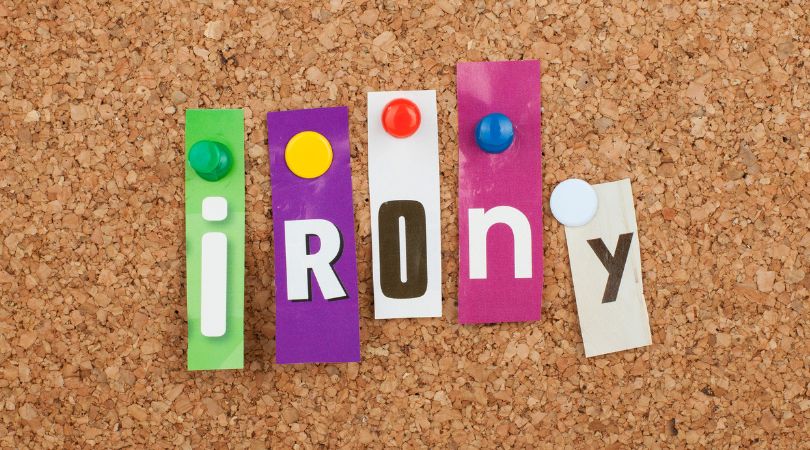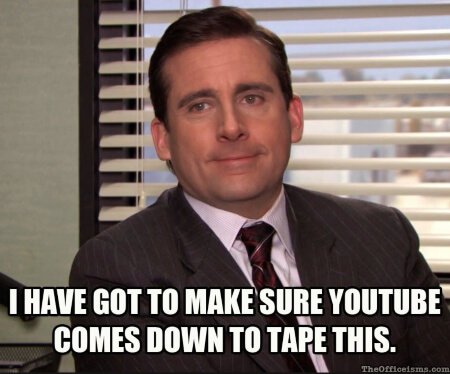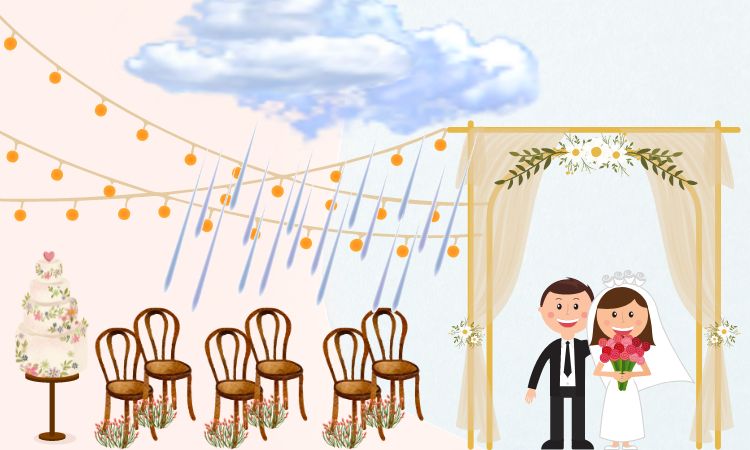Irony is a literary device that has been around for centuries and is still widely used today. Irony examples can be found everywhere from literature and film to everyday conversations.
But it’s not just about making jokes – it can also be used to make powerful statements or draw attention to something that needs more consideration.
In fact, it’s one of the most commonly misused literary devices in language and speech. To use it effectively, you must first understand what irony is and how it works.
To illustrate, we’re going to go over irony examples in its various forms as well as offer a few of our best tips on how to use irony correctly so that your words have the desired effect on your audience.
We will explore situational irony, verbal irony, dramatic irony, as well as other irony examples from film and real-life situations.
So let’s dive right into understanding the power of ironic language!
What is Irony?

Irony is defined as a rhetorical device and type of humor used to express contradiction between what is said (literal meaning) and what is meant (intended meaning), or between appearances and realities.
Irony often involves unexpected events or situations that contrast sharply with what was expected and can be used to make a point, create humor, or add interest to a piece of literature.
Here are a few simple examples of irony:
- When someone says they’re “so happy” while clearly feeling miserable
- When you build a house for shelter but it collapses on you due to poor construction
- When someone attempts to help another person but ends up making their situation worse
In each of these cases, there is an expected outcome and a plot twist that often ends up the exact opposite of what was intended.
You can also make an ironic understatement:
- When your friend spilled wine all over their blouse and you tell them “It doesn’t look so bad.”
Or an ironic overstatement:
- When someone burns a birthday cake and you tell them that “they should start a YouTube channel on baking.”
An ironic understatement is usually meant to make something seem like less of a big deal while an ironic overstatement is usually an exaggeration of a situation.
How is Irony Commonly Misused?
When irony is used correctly, it can add humor and interest to text or conversation. But when it’s misused, it can lead to confusion and misinterpretation.
That’s why it’s important to understand the definition of irony as well as how it’s most commonly misused.
Sarcasm

Sarcarsm is one of the most common ways that irony is misused. For example, someone might say sarcastically, “Thanks a lot!” when they actually mean the opposite, but this is just sarcasm.
Irony involves an unexpected twist of events or situations that contrasts sharply with what was expected.
Sarcasm can be used in similar situations, but one difference between sarcasm and irony is that sarcasm usually has a more negative connotation (like an insult).
Disbelief or Surprise
Another common mistake is when irony is used to express disbelief or surprise. For example, “I can’t believe you did that!”
Even though someone did something that you weren’t expecting, it’s not really irony unless there was an understood expected outcome and the person did the opposite.
Coincidence
Lastly, irony is also often confused with coincidence, but they aren’t the same thing. Irony involves an intentional contrast between two ideas, while coincidences are just chance occurrences of events that are unrelated.
Types of Irony
Irony comes in a variety of forms, each of which has its own distinct purpose and effect. The 3 main types of irony are situational irony, verbal irony, and dramatic irony.
But we’re also going to take a closer look at a couple of additional types of irony that are also widely recognized.
1. Situational Irony

Situational irony refers to when the outcome of a situation is opposite of what was expected or intended.
This type of irony often relies on contrast to make its point and can be used for both comedic and serious purposes.
A perfect example of situational irony would be when someone trips and spills their drink on themselves while walking down the stairs to get it refilled.
The person tried to do something good (get a refill) but ended up with an unexpectedly bad result (spilling their drink).
Other Examples of Situational Irony
- A fire station burns down.
- A dietician is overweight.
- The wedding planner gets divorced.
- A lifeguard drowns while on duty.
- A postman fails to deliver his own mail
2. Verbal Irony

Verbal irony occurs when one says one thing but implies another with their words.
This type often involves sarcasm or satire and can be used for comedic purposes as well as to emphasize a point or critique an idea.
A great example of verbal irony would be teacher saying to their student, “You’re really good at this. You should win a Nobel Prize for your work!” when the student failed the test.
In this case, the verbal irony lies in the fact that the teacher is making an absurd statement in order to emphasize how bad the student’s work is.
Other Examples of Verbal Irony
- “It’s a great day for a swim!” (During a snowstorm)
- “You’re a great driver! You should get an award!” (When driving poorly)
- “The weather is gorgeous today.” (Said turning a tornado)
- “I love how organized and punctual you are.” (When arriving late)
- “I’m really glad we were careful.” (After an accident has occurred)
3. Dramatic Irony

Dramatic irony occurs when there is a discrepancy between what a character believes and what is true in reality – usually because the other characters know more than they do.
This type of irony adds tension and suspense to stories by leaving readers hanging until all the pieces come together and reveal the twist ending.
A good example of dramatic irony is when Oedipus, in Oedipus Rex, unknowingly kills his father without realizing it until later on in the story.
Other Examples of Dramatic Irony
Many other famous examples of dramatic irony can be found in classic literature.
- In Othello, when Iago convinces Othello that his wife is unfaithful while in reality, he’s trying to drive them apart.
- In The Great Gatsby, when Jay Gatsby is oblivious to Daisy Buchanan’s true feelings towards him while the reader can see her inner turmoil from start to finish.
- In Frankenstein by Mary Shelley, when Victor Frankenstein is surprised to see the monster he created still alive despite his attempt to destroy him through drowning.
- In The Crucible by Arthur Miller, John Proctor does not know that Abigail has lied about him in court until it is too late to save himself from a death sentence for witchcraft.
- In Jane Austen’s Pride and Prejudice, Mr. Darcy rejects Elizabeth early on in their courtship without knowing she loves him back all along.
4. Cosmic Irony

Cosmic irony refers to an ironic twist that exists at a higher level than human understanding – like fate playing tricks on people or life being full of surprises despite our best-laid plans.
It’s important to note that this type of irony doesn’t rely on the contrast between expectations and results but instead relies on the contrast between imaginable possibilities and actual events that occur outside our control.
An example would be when someone spends their entire life trying to achieve a certain goal, only for it to slip away from them in the end for no reason.
Other Examples of Cosmic Irony
- A person dedicates their life to helping others, only for them to live a lonely and isolated existence.
- Someone spends years trying hard to get accepted into college, only to find out that they have better opportunities elsewhere.
- A family saves up all their money yet never manages to take the desired vacation due to unforeseen circumstances each time they plan it.
- An individual works tirelessly day after day without ever gaining recognition or appreciation from those around them.
- A couple plans every aspect of their wedding day only for something unexpected to happen on the day of the ceremony preventing them from getting married as planned.
5. Tragic Irony

Tragic irony refers to a situation where irony is used to create a sense of tragedy in a story or situation.
This type of irony relies on a contrast between what is expected and what actually occurs, often resulting in unexpected yet devastating outcomes.
In literature and theater, tragic irony is often used as a tool to build suspense and tension, leading up to a powerful conclusion.
A popular example is in Shakespeare’s Romeo and Juliet, where Romeo believes that Juliet is dead when she isn’t – leading to his own death in the end.
Other Examples of Tragic Irony
- In Macbeth, when Lady Macbeth poisons King Duncan without him realizing it until it’s too late.
- Firefighters who died while battling a fire.
- In the play Antigone by Sophocles, Antigone is sentenced to death despite her noble intentions of burying her brother’s body with honor.
- In Hamlet, when Hamlet unknowingly kills Polonius instead of Claudius who he was actually looking for.
- A doctor dying of an illness he specializes in treating.
Other Examples of Irony
Now, we will look at some additional irony examples in everyday life as well as film and literature.
Irony in Movies and TV

Here are a few notable irony examples in film, TV, and pop culture.
- The infamous irony of Dumb and Dumber when Lloyd Christmas says, “So you’re telling me there’s a chance?”
- In The Office, Michael Scott consistently expects his employees to act professionally while he acts anything but professional himself.
- In The Simpsons where Homer often makes ironic statements such as: “Kids are great! You can teach them languages so they can explain to you what they’re doing wrong.”
- In Breaking Bad to create suspense when Gus Fring knows exactly who poisoned him despite having no evidence pointing towards it at first glance (it was actually Walt).
- In Bob’s Burgers, Louise Belcher delivers ironic lines like this one: ‘This is going to be a great day just like every other day, which is not very great at all.”
Irony in Real Life
Irony is also present in our everyday life and sometimes — it makes you laugh. The interesting thing is that it’s most often funny when it’s not happening to you!

Below are a few everyday examples of irony and also sometimes funny irony for you.
Note that verbal irony and situational irony are some of the most commonly used in everyday life.
- Bad weather on a day you planned to have an outdoor event.
- Someone who works in customer service having the worst customer service experience of their life with another company.
- Getting a parking ticket while attending a “safe driving” semifnar.
- Receiving an email that reads “We value your feedback” after submitting negative comments about their product or service online.
- Someone winning the lottery without having purchased a ticket.
- Running late to a lecture on punctuality.
- Being told off for showing up late to work while the supervisor is running late too.
- Putting gas in your car only to find out you need an oil change instead.
- Falling asleep while watching a video about staying awake.
- Spending hours trying to fix something then realizing the problem was due to user error.
5 Tips to Use Irony Correctly
Because it’s so often misused, we want to give you a few tips to help you understand irony and when to use it.
1. Analyze the Situation
Before using irony in any situation, it is important to analyze and consider the context, people’s feelings, and the potential implications of what you’re saying.
For example, ironic statements can easily come across as sarcastic or offensive if used in the wrong way.
2. Be Mindful of Tone
It’s important to be mindful of the tone you are conveying and adjust your delivery accordingly. The choice of words will determine whether irony is perceived as funny (light-hearted tone) or inappropriate (critical tone).
3. Use Subtly
Irony should be used subtly so that it does not become too obvious or overbearing. It may be tempting to be overly dramatic, but this often results in an ineffective and awkward delivery.
4. Know Your Audience
Knowing who you are addressing and what their feelings towards irony are will help you decide how to effectively use it without causing offense. If you are unsure about how someone might respond, then it may be best to avoid using it altogether in that particular situation.
5. Consider Timing
Timing is also key. Ironic statements should only be made after a situation has had time to unfold rather than in the heat of the moment when emotions can be heightened and misinterpreted.
Summary of How to Use Irony
Irony implies a contradiction between what was said and what was intended or between appearances and reality.
It’s often used as a literary technique in literature, television, and everyday life to create depth and complexity, reliability, and humor.
Ironic statements are often misused as sarcasm or disbelief, so it is important to be aware of the context of the situation and choose your words carefully in order to convey your intent effectively
Good use of irony can highlight memorable moments in conversations and stories, while bad use can come across as offensive or inappropriate.
Consider subtlety and not too obvious about it. Additionally, consider who your audience is and the timing of when you make an ironic statement.
With these tips in mind, you should have no problem mastering this literary device!
You can also check out a few of our other related articles if you’re looking to spice up your speech: